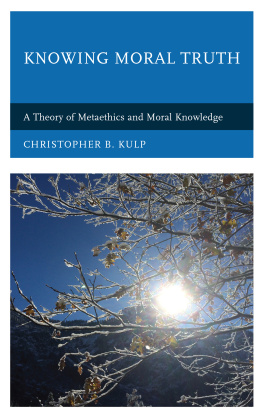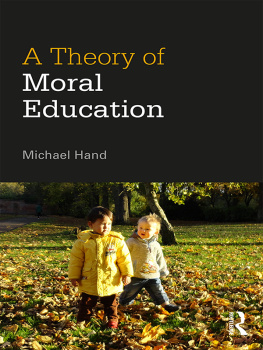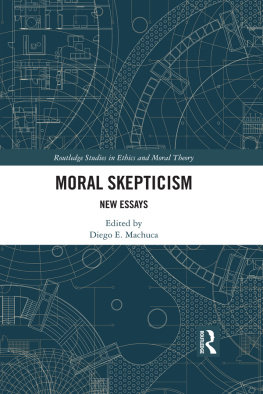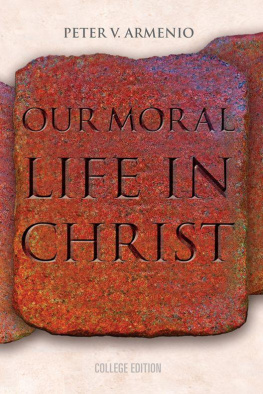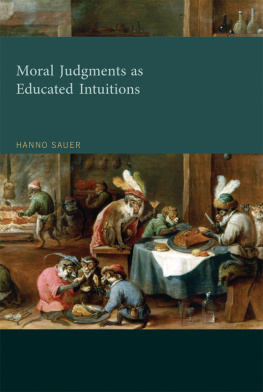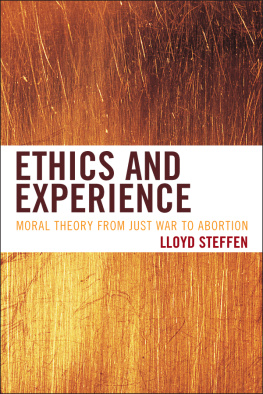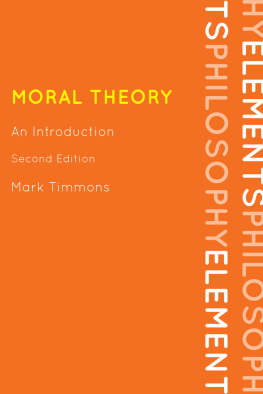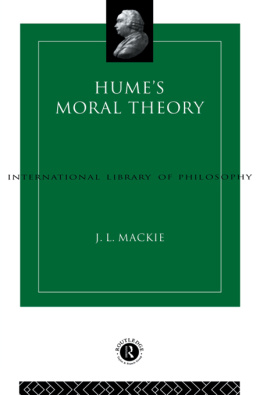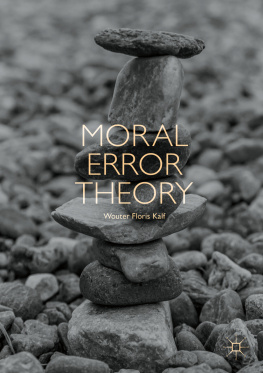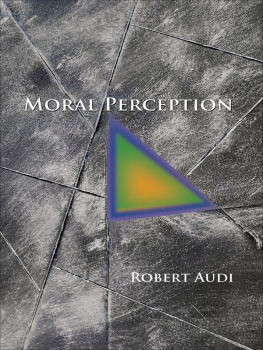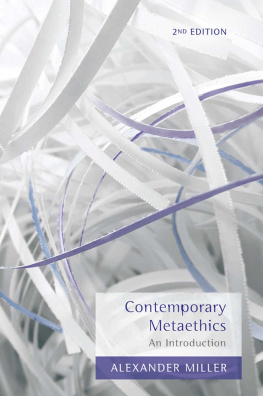Kulp - Knowing moral truth : a theory of metaethics and moral knowledge
Here you can read online Kulp - Knowing moral truth : a theory of metaethics and moral knowledge full text of the book (entire story) in english for free. Download pdf and epub, get meaning, cover and reviews about this ebook. year: 2017, publisher: Lexington Books, genre: Religion. Description of the work, (preface) as well as reviews are available. Best literature library LitArk.com created for fans of good reading and offers a wide selection of genres:
Romance novel
Science fiction
Adventure
Detective
Science
History
Home and family
Prose
Art
Politics
Computer
Non-fiction
Religion
Business
Children
Humor
Choose a favorite category and find really read worthwhile books. Enjoy immersion in the world of imagination, feel the emotions of the characters or learn something new for yourself, make an fascinating discovery.
- Book:Knowing moral truth : a theory of metaethics and moral knowledge
- Author:
- Publisher:Lexington Books
- Genre:
- Year:2017
- Rating:5 / 5
- Favourites:Add to favourites
- Your mark:
- 100
- 1
- 2
- 3
- 4
- 5
Knowing moral truth : a theory of metaethics and moral knowledge: summary, description and annotation
We offer to read an annotation, description, summary or preface (depends on what the author of the book "Knowing moral truth : a theory of metaethics and moral knowledge" wrote himself). If you haven't found the necessary information about the book — write in the comments, we will try to find it.
Kulp: author's other books
Who wrote Knowing moral truth : a theory of metaethics and moral knowledge? Find out the surname, the name of the author of the book and a list of all author's works by series.
Knowing moral truth : a theory of metaethics and moral knowledge — read online for free the complete book (whole text) full work
Below is the text of the book, divided by pages. System saving the place of the last page read, allows you to conveniently read the book "Knowing moral truth : a theory of metaethics and moral knowledge" online for free, without having to search again every time where you left off. Put a bookmark, and you can go to the page where you finished reading at any time.
Font size:
Interval:
Bookmark:
Knowing Moral Truth
Knowing Moral Truth
A Theory of Metaethics
and Moral Knowledge
Christopher B. Kulp
LEXINGTON BOOKS
Lanham Boulder New York London
Published by Lexington Books
An imprint of The Rowman & Littlefield Publishing Group, Inc.
4501 Forbes Boulevard, Suite 200, Lanham, Maryland 20706
www.rowman.com
Unit A, Whitacre Mews, 26-34 Stannary Street, London SE11 4AB, United Kingdom
Copyright 2017 Lexington Books
All rights reserved. No part of this book may be reproduced in any form or by any electronic or mechanical means, including information storage and retrieval systems, without written permission from the publisher, except by a reviewer who may quote passages in a review.
British Library Cataloguing in Publication Information Available
Library of Congress Cataloging-in-Publication Data
Names: Kulp, Christopher B., author.
Title: Knowing moral truth : a theory of metaethics and moral knowledge /
Christopher B. Kulp.
Description: Lanham : Lexington Books, 2017. | Includes bibliographical
references and index.
Identifiers: LCCN 2017006782 (print) | LCCN 2017015146 (ebook) | ISBN
9781498547031 (Electronic) | ISBN 9781498547024 (cloth : alk. paper)
Subjects: LCSH: Ethics. | Knowledge, Theory of.
Classification: LCC BJ1031 (ebook) | LCC BJ1031 .K85 2017 (print) | DDC
170/.42--dc23
LC record available at https://lccn.loc.gov/2017006782
 TM The paper used in this publication meets the minimum requirements of American National Standard for Information Sciences Permanence of Paper for Printed Library Materials, ANSI/NISO Z39.48-1992.
TM The paper used in this publication meets the minimum requirements of American National Standard for Information Sciences Permanence of Paper for Printed Library Materials, ANSI/NISO Z39.48-1992.
Printed in the United States of America
To my wife, Akemi Odomo
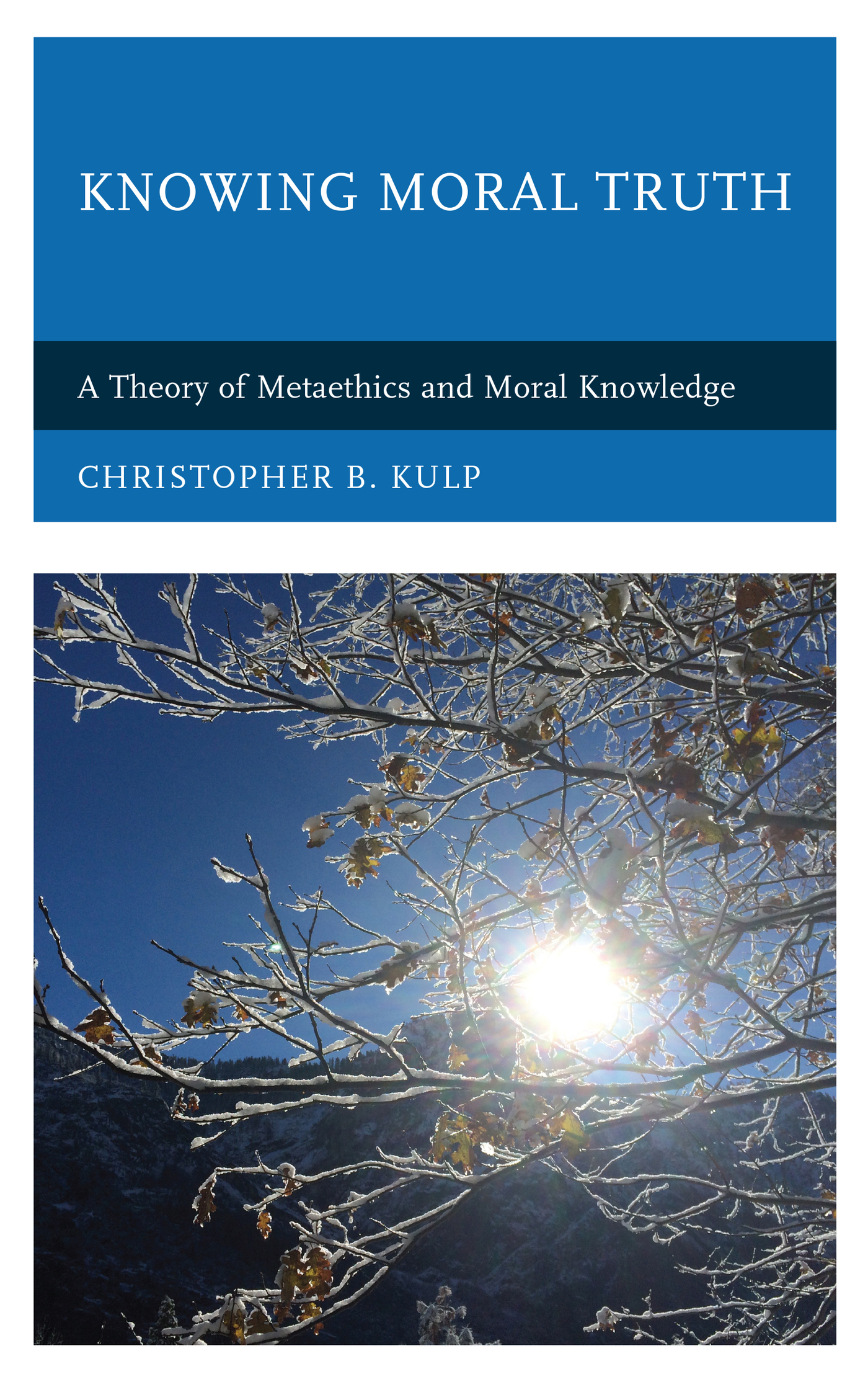
There are many people over the years with whom I have discussed matters dealt with in this book; I have profited greatly from their insights. The following stand out as especially meriting my appreciation: Mane Hajdin, Michael Hickson, William Parent, William Prior, Robert Shanklin, and Artur Szutta. In particular, I want to thank Robert Audi for his inspiration and for his penetrating commentary on various parts of the book in earlier forms. I also wish to thank audiences at the University of TexasSan Antonio, the University of Gdansk, Poland, and Santa Clara University for helpful commentary on presented papers which bear on many parts of this book.
In addition, I wish to thank Santa Clara Universitys Markkula Center for Applied Ethics for their generosity in awarding me a Hackworth Faculty Research Grant for work on this book. I also wish to thank Santa Clara Universitys Office of the Provost, for awarding me both sabbatical leave and for a course release under the Santa Clara University Faculty Research Course Release Program. The universitys assistance has been invaluable to this project.
I also gratefully acknowledge permission to quote from several of my previous publications. My thanks to International Philosophical Quarterly, for permission to quote from my article, Disagreement and the Defensibility of Moral Intuitionism, International Philosophical Quarterly Vol. 56, issue 224 (December 2016): 487502. Also, for quotations which are here used by permission of Bloomsbury Publishing, Plc, I wish to thank both Jill Graper Hernandez and the Continuum International Publishing Group for allowing me to quote from my article Moral Facts and the Centrality of Intuitions, in The New Intuitionism, edited by Jill Graper Hernandez (New York and London: Continuum, 2011): 4866. And finally, I wish to thank Springer Publishing Company for permission to quote from my article, The Pre-Theoreticality of Moral Intuitions, Synthese Vol. 191 (October 2014): 3759778.
Last but hardly least, I wish to thank my wife, Akemi Odomo, whose constant support was the sine qua non of writing this book.
The Spirit of G. E. Moore
On the morning of December 14, 2012, twenty-year-old Adam Peter Lanza entered Sandy Hook Elementary School in Newtown, Connecticut, and began shooting the schools occupants. By the time Lanza died at the scene of a self-inflicted gunshot wound to the head, twenty-six people lay dead or dying. In addition to Lanzas death, six of the schools staff members, most of them teachers, were killed. Their names are:
Rachel Davino
Dawn Hochsprung
Anne Marie Murphy
Lauren Rousseau
Mary Sherlach
Victoria Soto
Twenty of the schools children were also shot to death. Their names and ages are as follows:
Charlotte Bacon, 6
Daniel Barden, 7
Olivia Engel, 6
Josephine Gay, 7
Ana M. Marquez-Greene, 6
Dylan Hockley, 6
Madeleine F. Hsu, 6
Catherine V. Hubbard, 6
Chase Kowalski, 7
Jesse Lewis, 6
James Mattioli, 6
Grace McDonnell, 7
Emilie Parker, 6
Jack Pinto, 6
Noah Pozner, 6
Caroline Previdi, 6
Jessica Rekos, 6
Avielle Richman, 6
Benjamin Wheeler, 6
Allison N. Wyatt, 6
Nancy Lanza, mother of Adam Lanza, was the twenty-seventh victim. She was found dead at the family home, with four gunshot wounds to the head. The police believe that she had been shot while sleeping.
As of this writing, this incident remains the third largest mass-killing of its kind in US history.
There are many ways to think about these killings. We might look at it psychologically: What psychopathy might have induced Lanza to murder these people, in particular the small children? We might look at it sociologically: Were there any especially strong societal stressors that conduced to Lanza behaving this way? Legal issues: Should the shooter be judged criminally insane? Political issues: Would a change in gun laws have prevented this event from happening? And we can certainly look at it morally.
Lets assume that Lanza was in possession of his senses when he committed this slaughteran assumption admittedly difficult to confirm because Lanza killed himself before a psychiatric examination could be performed. That is, lets suppose that Lanza chose to do what he did, and therefore was responsible for his actions. At first blush, there could scarcely be anything more straightforward than that what Lanza did was morally wrong in the extreme. Similar moral judgments seem applicable: impermissible, unjustifiable, contemptible, abhorrent, cruel, vicious, perverse... the list is long. A central thesis of this book is that what appears to us at first blush is in the end, after rigorous analysis, quite correct: Lanzas behavior is a paradigm case of moral wrongness.
Who in the world could think otherwise? Well, there are a lot of people who, officially at any rate, think otherwise: thoughtful people, in fact. But these people assuredly dont represent the views of the proverbial man in the street. The average person would find the Sandy Hook Shootings not only deeply upsetting, but profoundly morally wrongand would point to the immorality of the event as (at least part of) the cause of their upset. Indeed, they would consider this act wrong no matter where it occurred, when it occurred, or who performed it. It is wrong, period. And I emphasize that this judgment is enshrined in the criminal law of any nation with which I am familiar. But it is at this juncture that our average person parts company with some of the intellectual cognoscenti. For some of these experts would find the act morally wrong only in some restricted, qualified respect, not wrong,
Next pageFont size:
Interval:
Bookmark:
Similar books «Knowing moral truth : a theory of metaethics and moral knowledge»
Look at similar books to Knowing moral truth : a theory of metaethics and moral knowledge. We have selected literature similar in name and meaning in the hope of providing readers with more options to find new, interesting, not yet read works.
Discussion, reviews of the book Knowing moral truth : a theory of metaethics and moral knowledge and just readers' own opinions. Leave your comments, write what you think about the work, its meaning or the main characters. Specify what exactly you liked and what you didn't like, and why you think so.

